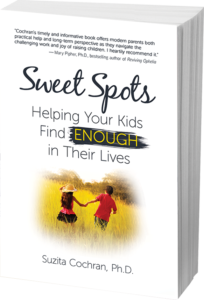My husband Todd grew early. By 7th grade he was 5’ 7.” For boys this can be an advantage, a luck-of-the-draw event that goes your way. Todd had always enjoyed basketball and his early growth spurt, along with hours and hours of shooting on his driveway hoop, yielded a position on his middle school basketball team. I’m guessing this is a pretty big deal for a middle school boy. Todd remembers being proud to be on that team.
During his first two years of high school Todd played on the freshman and junior varsity basketball teams. On the junior varsity team he worked with his favorite coach. Coach Scott told Todd and his teammates that family and school came before basketball, and emphasized having fun on the court. Todd and I have consistently searched for this (at times hard to find) attitude in coaches for our kids.
When Todd was a junior, he moved up to the varsity basketball team. Things changed almost immediately. This team held two practices a day during the school week, the first began at 6:45 a.m. Games weren’t played in the high school gym, but in the city’s coliseum, and reported on in the sports pages. Everything about the experience was more serious and intense, including the varsity coach. Todd said the game quickly stopped being enjoyable and two months into the season, he quit.
Todd still has former high school classmates, and even parents of classmates, who disagree with his decision to quit. Basketball was big in his town and landing a spot on the varsity team was an honor. When Todd reunites with old friends, the subject of his quitting basketball invariably comes up. But to this day Todd knows he made the right decision for him.
What role does quitting play in the lives of our kids? Should it be on the table as an option, or only a last resort? We’ve all heard that quitters never win and winners never quit. I guess that’s one answer to my question. Recently I looked for quotes on quitting and only found ones with similar sentiments. Seems many of us are not fond of quitters.
I usually write about more unanimously agreed upon parenting topics such as teaching kids persistence, or gratitude, or financial skills. Yet one of my most popular posts was about teaching kids how to learn from failure. Failing and quitting have the same end result but differing paths to this destination. My stepfather (the one who rewarded me for failing) defined a good failure as when we try mightily for something we really want, but fail to attain it. Failing usually involves another person deciding you didn’t make the cut. Failing, therefore, has a large ouch factor.
We have more control over quitting. We can mull it over as long as we want before making the decision to walk away from something. Others may not agree with it, but quitting is mostly our decision. My stepfather, Dan, also supported quitting. During the last week of my hard-working and active high school career he said, “Remember, it’s still not too late to drop out and pursue a different path.” He’s no longer with us to give his opinion on the importance of quitting, but I would guess it had to do with reminding ourselves we always have choices. Quitting is an expression of our personal freedom, he’d probably say.
For those of us who are less comfortable with quitting, how do we decide it’s time to call it a day?
Five Things to Discuss with Your Child When S/he is Considering Quitting:
1. Has your child followed the full arc of the experience? Has she, for example, played the viola long enough that she’s had good days and rough days, satisfying weeks and disheartening ones? If not, it’s possible she is quitting on the early side.
2. Is your child at a point where he consistently has more bad days than positive ones with this activity? If he’s done it for a while already, this may be a sign it’s time to quit.
3. Has a requirement of the activity recently changed? This year practices are much longer, or your child has to travel far away for meets, or a new teacher has a much different approach?
4. Is there something else that your child is really wanting to start (and has for a while), but can’t begin due to the time commitment of her current activity?
5. Might your child be experiencing a period of burnout that could be addressed in other ways rather than full-out quitting? It seems strange to think about burnout in younger children. On the other hand, we all know kids who began swim team, soccer, or piano at age five and continued on to more competitive levels each year. In these situations burnout is indeed a possibility.
Jesse Lynn Hanley, co-author of Tired of Being Tired, describes one phase of burnout as “dragging.” Your child can’t seem to find the energy she once did for her activity. We parents probably pick up on this state quickly, noticing a steep increase in our nagging. Hanley recommends that people experiencing this type of burnout get more sleep, eat small, healthy snacks often, and have more fun. We can help our kids get back in touch with things they find low-stress and pleasurable. Not being adults, this will likely take our kids all of twenty minutes. Additionally, taking a week-long break from lessons or practices is sometimes what’s needed to re-energize a child.
After thinking through these points, it’s time to help your child generate a list of pros and cons regarding quitting. Recently my friend, Bella, did this with her 9 year-old son, Sam. The prior year Sam had begged to play soccer. Although he wasn’t the most coordinated kid on the field, he’d loved it all that year. A few weeks into this season, however, Sam began saying he wanted to quit. It turned out his new coach had added some endurance drills in the form of pre- and post-practice laps. Sam was frustrated because many of the kids were faster than he was. When he and Bella sat down and listed the pros and cons of soccer, the cons section was lengthy. Bella was quite sure Sam would opt to quit. To her surprise though, venting all those cons on paper made Sam feel much better and he skipped away saying he still wanted to play soccer.
More commonly, however, making the list of pros and cons can provide the final clarification that it’s quitting time.
Stephen Dubner and Steven Levitt co-authors of Freakonomics are strong proponents and practitioners of quitting. In their Freakonomics radio show on quitting, Levitt advocates that when it’s time to quit, do it fast. Walk away and don’t look back. As long as the decision to quit has been a thorough one, I agree. Otherwise we wallow in what-ifs rather than use our freed-up energy and resources for new projects and passions. Dubner also suggests that understanding why we are quitting and taking personal responsibility for the decision helps us to move on.
Being an economist, Dubner describes an economic phenomenon that gets in the way of quitting, sunk costs. Sunk cost is a concept which focuses on the past. “I can’t quit now, think of all the time and effort I’ve put into water polo.” This thinking illustrates the sunk costs fallacy and it, in addition to the opinions of others, is why many of us struggle to quit anything.
Then Dubner discusses opportunity cost, a future-focused notion. “Yes, but all those hours and dollars I’m putting into water polo, which I don’t even really like anymore, I could be putting toward something I think I’d love, pottery.”
Professor Carsten Rausch of Concordia University in Montreal, Canada has studied quitting and agrees that adults regularly fall for the sunk costs fallacy. It fits right in with our ethic of not being wasteful.
But here’s the unexpected part, he says children are unfazed by the sunk costs fallacy! Picture your kids and think about this. It makes intuitive sense, doesn’t it? When my son Stephen told us yesterday that he might try playing another instrument for a while, he wasn’t at all considering the fact that after 2 1/2 years, we’ve nearly paid off his clarinet. And the number of hours he’s put in practicing clarinet didn’t seem to factor into his comment in the least.
When we help our kids list their pros and cons of an activity, we must remember that adults are more affected by sunk costs than children are. This can allow our kids to view their current situation with more clarity than we do.
In his research on quitting, Rausch found that quitting can be good for one’s health. People who are better able to let go have fewer depressive symptoms, lower levels of systemic inflammation, lower cortisone levels, and develop fewer health problems over time.
That even gives quitting a rosy glow! Although I’m sure Amy Chua, author of Battle Hymn of the Tiger Mother, would heartily disagree. She sees parents in the dominant Caucasian culture as letting their kids quit things much too easily. When I, along with so many other parents, read her essay this year it struck many chords. My first inclination was to completely ignore her rather extreme thesis.
But after I put the article down for a bit, I remembered that it’s often those outside one’s culture who can see our problems most accurately. When I thought more about what Chua had to say, I decided to take with me the idea that if kids don’t make it past the initial challenges of any new skill, they will never experience the joy and deep satisfaction that come with mastery. This point resonated with me.
Deep satisfaction from mastery VERSUS increased mental and physical health from quitting.
Both good choices.
According to Professor Rausch, each of us encounters a potentially unattainable goal approximately once a year. So, we all get quitting practice annually. Judging from my kids’ lives, quitting opportunities during childhood are even more frequent.
The advice to quit without looking back is useful during the actual quitting event and days soon after. But it’s also helpful to remember that, after moving on, it’s not as if our kids will never again take up a once-loved instrument, sport, or hobby. Todd spent much of college and graduate school playing intramural and pick-up basketball. For him it was an ideal way to exercise, meet people, and blow off steam. Basketball will always have a comfortable familiarity for him.
These past few years Todd has coached our son Daniel’s basketball team. In this way he’s rekindled his fond memories of Coach Scott by borrowing some of the coaching methods and messages he found helpful long ago.
Leave a comment below about how a child you know handled quitting. Thanks!


 Sweet Spots: Helping Your Kids Find ENOUGH in Their Lives.
Sweet Spots: Helping Your Kids Find ENOUGH in Their Lives.


You have really illuminated so many of the underpinnings of why quitting is not only an important topic for parents, but also why it can be such an emotional and intense one. We all have learned about quitting in different ways, but if we aren’t clear with ourselves about our own history with quitting and what stance we take on quitting as parents we can really make things more difficult for our kids. Your use of Todd’s experience really brought that home for me. As I parent, I believe, if you can say “I quit” – you gain a freedom that allows you to consider more clearly what you want and need. It is a part of the process of problem-solving whether you are a kid or a grown-up. We quit on a daily basis at our house – it is okay to say you quit – and it is okay to change your mind about quitting. I recognize that “quitting” your homework isn’t the same thing as quitting the basketball team, but for our kids I think it helps life feel more manageable. They are learning that the same process applies to quitting the little stuff and quitting the big stuff. They get to repeatedly “try on” the idea of giving up on something regardless of what it is. So far, for them, this typically means they don’t actually quit.
I love the way your family simply weaves quitting into the fabric of your daily lives. It would make it much less of a “hot” topic to be avoided. And it sounds like by making it an open option, your kids know they can choose it but don’t actually choose it that much. Thanks for your thoughtful comment!
To quit or not to quit. I was taught once you start, see the project, sport, class…to it’s stopping point. Evaluate and make your decision from that point forward. My son is a senior and also playing basketball. This year he has spent most of the season on the bench which is a new experience and not one he has accepted. He has asked to quit the team for no other reason that it is not fun to sit the bench which i understand and also join him in his fustration. He has talked to the coach and as you can imagine winning is first and foremost. Do you allow him to quit because he has failed to see court time? Would it not be a better solution to remain on the team to the end of the season and support his team, and is this not a teachable moment in life? If i allow him to quit he will always look back at his senior year as a quiter. Not one who took the high road for his team and helped out where he could. In this case he is not choosing to quit to work on another sport or study. We are talking about 30 days in the life of a senior boy………..we will stick it out…..together as a family.
Thanks for sharing your story. It is clear you have thought very carefully about this. I like that your are sticking it out together as a family.